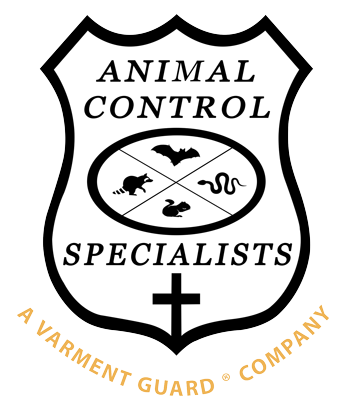DIY wildlife control may seem like a cost-effective and convenient solution for homeowners facing wildlife infestations. However, there are significant risks involved in attempting to handle these situations without professional assistance. Firstly, many wild animals can carry diseases such as rabies, hantavirus, or leptospirosis, posing a serious health risk to humans. Without proper training and protective gear, individuals attempting to remove wildlife from their property may unknowingly expose themselves to these pathogens. Secondly, wildlife control requires a deep understanding of animal behavior and biology. Professionals possess the knowledge and experience to safely and efficiently handle different species, ensuring that the animals are removed without harm to both humans and the animals themselves. Additionally, wildlife control often involves the use of traps or pesticides, which can be dangerous if mishandled. Professionals are well-versed in the appropriate use of these tools, minimizing the risk of accidents or unintended consequences. Ultimately, the risks associated with DIY wildlife control make it clear that professional assistance is necessary for effective and safe removal of wildlife from residential areas.
The Risks of DIY Wildlife Control: Why Professionals are Necessary
Wildlife encounters can be exhilarating and fascinating experiences, but when these encounters happen in the comfort of our homes or properties, they can quickly turn into a nightmare. From raccoons rummaging through garbage cans to squirrels nesting in the attic, wildlife intrusion can disrupt our lives and pose significant risks to our health and safety. While some may be tempted to tackle these issues on their own, it is crucial to understand the risks involved and why professionals are necessary in wildlife control.
1. Lack of Knowledge and Experience
Dealing with wildlife requires a deep understanding of their behavior, biology, and habits. Without proper knowledge and experience, attempting to remove or control wildlife can be ineffective and even dangerous. Professionals in wildlife control undergo extensive training and possess a wealth of knowledge about various species, their habits, and the most effective methods to handle them. They can accurately identify the species causing the problem and implement appropriate strategies for removal and prevention.
2. Safety Hazards
Wild animals, no matter how small or seemingly harmless, can carry diseases that pose serious health risks to humans. Raccoons, skunks, and bats are known carriers of rabies, while rodents can transmit diseases such as hantavirus through their droppings and urine. DIY wildlife control methods can put individuals at risk of bites, scratches, or exposure to harmful pathogens. Professionals are equipped with the necessary personal protective equipment and have the expertise to handle wildlife safely, minimizing the risk of injury or disease transmission.
3. Legal and Ethical Considerations
Engaging in DIY wildlife control without proper knowledge of local laws and regulations can lead to legal consequences. Many wildlife species are protected by state or federal laws, making it illegal to harm or kill them without the appropriate permits. Professionals in wildlife control are well-versed in these regulations and can ensure that all actions taken are within the boundaries of the law. Additionally, professionals prioritize ethical practices, employing humane methods to remove and relocate wildlife whenever possible.
4. Structural Damage
Wild animals that find their way into our homes or properties can cause significant damage. Squirrels and rats can chew through electrical wires, leading to fire hazards, while raccoons and skunks can tear apart insulation and create costly repairs. DIY attempts to remove wildlife may inadvertently worsen the situation by causing further damage to the property. Professionals have the expertise to assess the extent of the damage and implement effective solutions to not only remove the animals but also repair and prevent future entry points.
5. Long-Term Solutions
One of the biggest advantages of hiring professionals for wildlife control is their ability to provide long-term solutions. DIY methods may offer temporary relief, but without addressing the root causes of wildlife intrusion, the problem is likely to persist. Professionals conduct thorough inspections to identify entry points and vulnerabilities, allowing them to develop comprehensive strategies for exclusion and prevention. By addressing these underlying issues, professionals can ensure that wildlife encounters become a thing of the past.
In conclusion, the risks associated with DIY wildlife control are numerous and should not be taken lightly. Lack of knowledge, safety hazards, legal implications, structural damage, and the inability to provide long-term solutions are compelling reasons why professionals are necessary in wildlife control. By entrusting the task to experienced professionals, individuals can ensure a safe, effective, and ethical approach to dealing with wildlife intrusions.
Contact For Wildlife Control Help
Thank you for taking the time to read about Animal Control Specialists, LLC and our comprehensive animal removal services. We understand that dealing with unwanted wildlife can be a stressful and overwhelming situation. That’s why our team of experienced professionals is here to provide you with prompt, efficient, and humane solutions. Whether you’re dealing with a raccoon in your attic, a snake in your basement, or any other wildlife issue, we have the expertise and resources to handle it effectively. Don’t hesitate to give us a call today at (330) 608-1718 for immediate assistance. Trust Animal Control Specialists, LLC to safely and efficiently resolve your animal removal needs.
